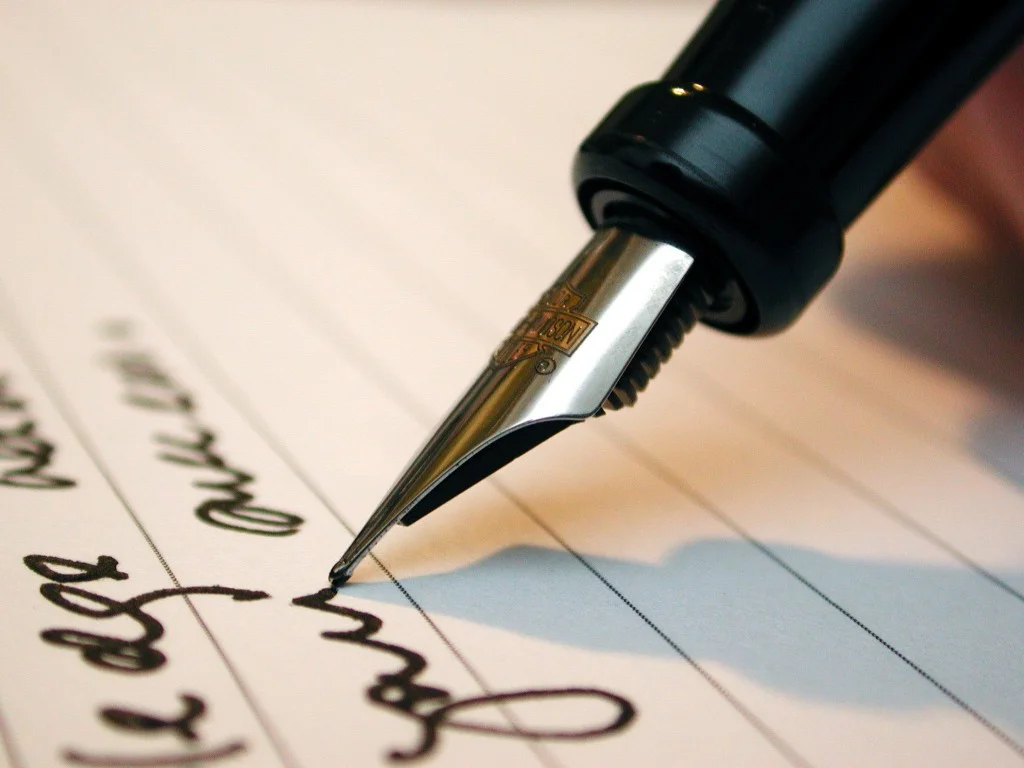The page is blank, You pick up the quill and dip it in the ink and hold it poised over the virgin surface. You mind races. Where to start?
No. You take the crinkly white sheet of onion skin paper and rachet it into the back of the type writer. Racht! Racht! Racht! And line it up. You hands are poised over the keys while your thoughts scramble.
No. The computer sings out its solitary chime when you push the power button and watch the screen blossom. A few deft clicks and there is the blank, white screen in front of you, the cursor (or curser depending on how you're feeling) pulses awaiting your input.
It seems now that everything I write I could simply backspace and rewrite and delete. Couldn't do that with pen and ink. And with the typewriter there was that second ribbon that typed over a mistaken letter and changed it from black to white. And there was 'White-Out'! Have we gotten better at putting down the words? There are so many typos because of the reliance on spell checkers allowing us to skip rereading what we have written. Even in the most elevated levels of thought.
Wait. That's not what I started out with. There is an emotional connection of forming the words on a pure white sheet of paper with a fine writing instrument that one cannot get mechanically typing these words on an electronic screen and then having some sort of miraculous machine spit the pages out across the room. But our keyboard layout reflects the old typewriter days when the mechanics forced the key locations to provide time for the typebar to strike the paper and return to its resting position.
And when the transducer between the brain and the paper was a fountain pen, the style and structure all came from knowledge and experience. Now there is software. That used to be something basic like Microsoft Word, but now there are special writer software tools. I have enjoyed learning and using Scrivener. I don't know if it makes me a better writer, but it does make the process easier. What I need to do is remove as much of the mechanics as I can to make the connection more direct from my brain to the story. When I got an IBM Selectric typewriter years ago, it took me months to separate myself from the magic of the machine to the magic of the words. "Get over it!" they say. That's sometimes hard to do.

